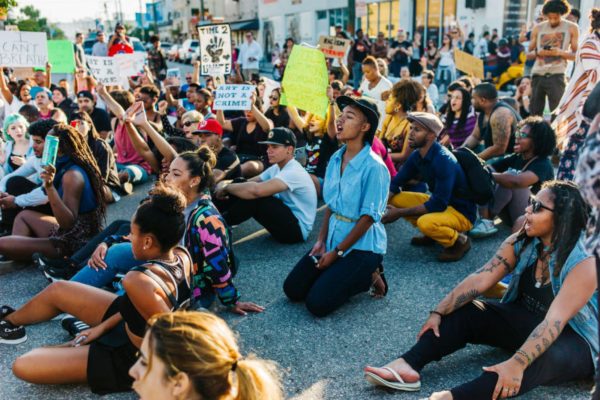The Declaration of Independence is a list of demands issued by protesters who could not get a hearing within their existing legal system. Then and now, we need laws to turn protesters’ vision into reality. And to implement those laws, voters must cast ballots for officials who share our vision of what America can be.
Many people do not see a connection between protesting and voting. Protesting is meaningful in and of itself. The feelings that drive protesters into the streets find expression in gathering with others who share our views. We are inspired by soaring articulations of the ideas we hold most dear. And the sky is the limit in our aspirations for a better country.
At historic moments like this, protest has an immediate, tangible effect. In the weeks since the George Floyd killing, Americans across the country have staged protests against racism and police brutality. Public sentiment on these issues has shifted more in the last month than in the previous five years. A majority of American voters in a recent survey supported the demonstrations because they’re mainly peaceful protests with an important message.
By contrast, many of us find voting difficult, boring or both. In Texas, online voter registration is not permitted, making it harder to become a voter in the first place. The crowds we welcome at a protest are an annoying waste of time at the polls. With rates of coronavirus infections spiking, many Texas voters also fear possible virus exposure. All of these are legitimate concerns that our elected officials have chosen not to address.
It doesn’t have to be this way. Several states conduct elections entirely by mail, including Colorado, Utah, and Washington. Thirty-nine states and the District of Columbia offer online voter registration. Some countries make Election Day a holiday, so no one has to miss work in order to vote. Officials who refuse to implement such changes claim that they lead to voter fraud, even though evidence does not bear this out. Using voter fraud as a smoke screen to avoid offering better access to voting is the real voting fraud. We deserve better.
And while a protest focuses on the best possible version of the changes we seek, the candidates on our ballot rarely reach those heights. They disappoint us. They don’t inspire us. We disagree with them on key issues. How, we ask ourselves, can this person make the changes I want?
The truth is they probably can’t. But that’s not a reason to not vote. Envisioning change and enacting change are very different. Protests can change people’s opinions quickly. But making those changes into reality is another matter. Big changes take a long time, and they are built on the rubble of failure.
In 1776, all 56 signers of the Declaration of Independence were white men, most of whom owned slaves. It took 90 more years for Americans of African descent to gain citizenship and voting rights. This year, we celebrate the centennial of women’s right to vote. Two prominent advocates of women’s suffrage, Susan B. Anthony and Elizabeth Cady Stanton, did not live long enough to vote themselves. But their work was not in vain.
The tireless efforts of voters and lawmakers alike who may never see the results of their own labors hold a lesson for us all. In confronting the important challenges we face, we will fail many times before we succeed. In the midst of those failures, it may seem that we are making no progress. It may seem that no one is listening to our voices. But we must keep speaking up, at the ballot box and in the streets, because we can’t know when failure at last becomes success. And if we don’t try, we will certainly fail.
Protests show us what we can aspire to be. But it’s our votes, and those we vote into office, that build the road to get us there. Even when we feel like we’re going nowhere, we are laying the groundwork for a better America.
Deborah Beck is an associate professor of Classics at The University of Texas at Austin.
A version of this op-ed appeared in The Hill.




